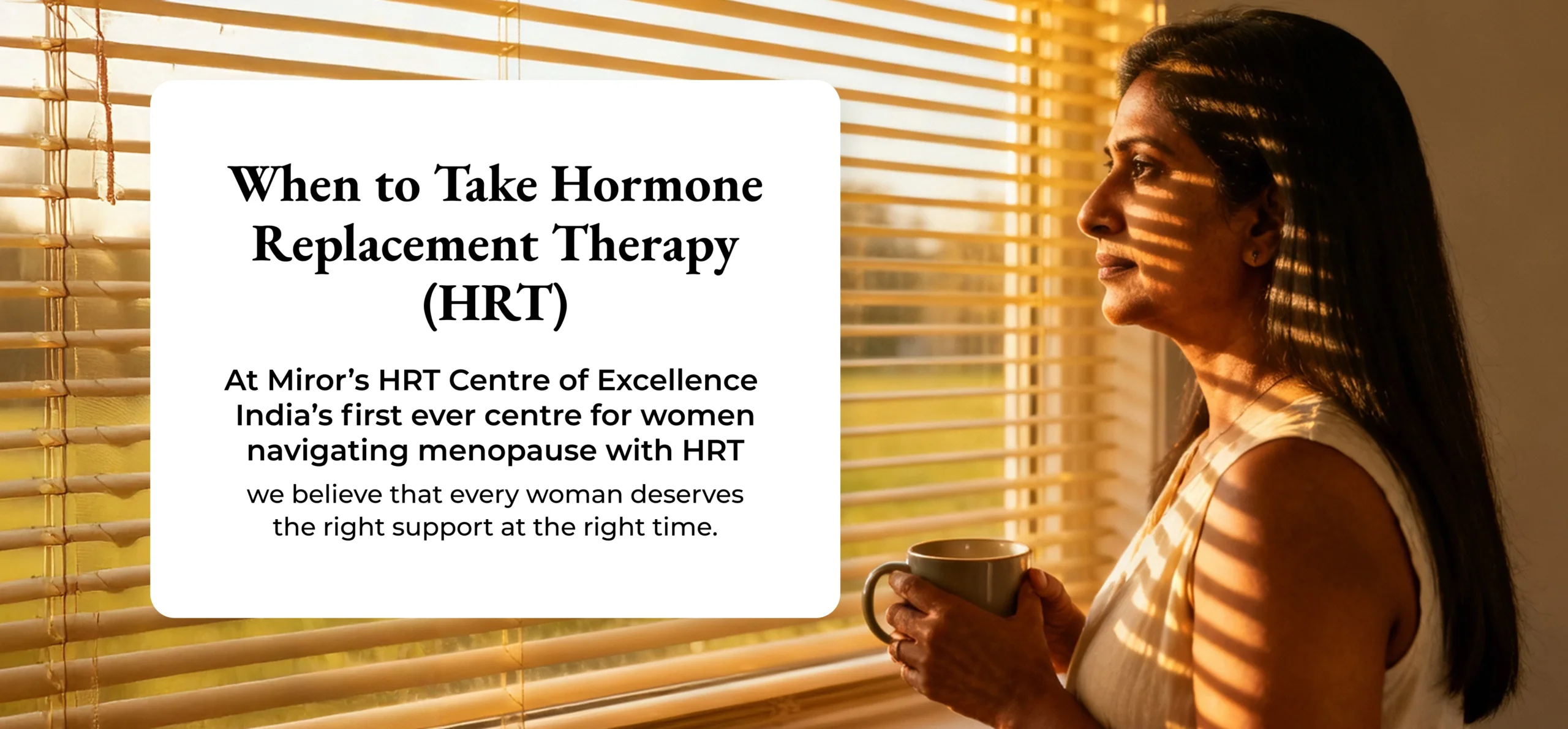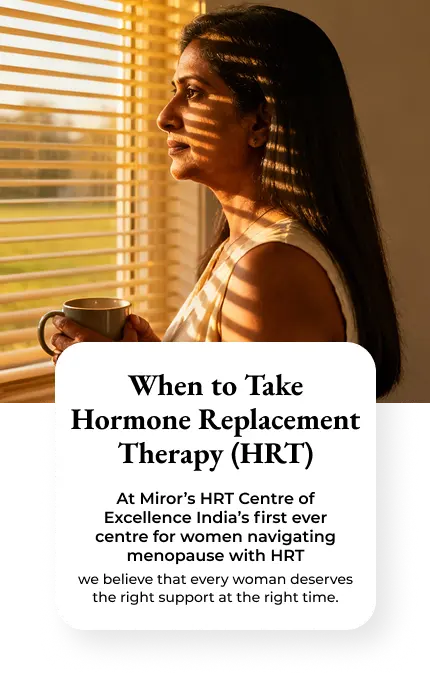

You can consider Hormone Replacement Therapy (HRT) if you’re experiencing menopause symptoms – whether you’re in perimenopause (the transition years before your periods stop) or in post-menopause (after your cycles have ended).
In India, most women experience menopause between 45 and 55 years, though it can sometimes happen earlier. Whenever it begins, the impact on daily life – sleep troubles, mood swings, hot flashes, bone or muscle weakness – is real. And HRT can make this journey smoother while also offering longer-term health protection.
When to Start HRT
When to Start HRT
If menopause symptoms are affecting your day-to-day life – whether it’s lack of sleep, mood swings, or constant fatigue – it may be time to talk to a doctor about starting HRT.
Remember: you don’t need to wait until symptoms are “unbearable” or until your periods have completely stopped. Early conversations mean better comfort and care.
At Miror’s HRT Centre, our specialists will walk you through the benefits and risks based on your health, lifestyle, and family history, so you feel confident about your decision.


If You’re Going Through Early or
Premature Menopause
For some women, menopause arrives earlier — before 45 years (early) or even before 40 years (premature). In such cases, taking HRT (or sometimes the combined pill) becomes especially important.
Why? Because a sudden drop in oestrogen increases the risk of conditions like osteoporosis later in life. HRT helps
restore that protective balance.
Most women in this situation are advised to continue HRT until at least the average natural menopause age (around 51 years in India).
If You’re Taking the Contraceptive Pill
- If you’re on the combined pill, you may not notice when perimenopause starts because the pill already contains oestrogen. Doctors may suggest continuing it until age 50, and then switching to HRT.
- If you’re on the progestogen-only pill (mini pill), you can usually take HRT alongside it.
- After 55 years of age, contraception is rarely needed, though barrier methods (like condoms) are still important for STI protection.
How Long to Take HRT
There’s no single “time limit.” How long you continue HRT depends on your symptoms, your age, and your overall health.
- For hot flashes or night sweats, most women take HRT for 2–5 years.
- Some may benefit from longer use, with yearly check-ins.
- Vaginal oestrogen (for dryness or discomfort) can be safely used for as long as you need it.
At Miror, we encourage an annual review with your doctor to ensure
your treatment remains safe and effective.

HRT Beyond 60
As women age, especially beyond 60, the risks of HRT may outweigh the benefits. Symptoms usually ease by this stage, while breast cancer and cardiovascular risks increase with prolonged combined HRT use.
Still, if you wish to continue HRT, doctors may suggest low-dose patches or gels rather than tablets, as they’re safer options.
Stopping HRT
Thinking about stopping? It’s best to do it gradually over 3–6 months instead of suddenly, as this reduces the chances of symptoms returning.
If your symptoms come back and linger, don’t worry. You can always discuss other treatment options — or even restart a lower dose of HRT — with your doctor.
At Miror’s HRT Centre of Excellence, we see every woman as more than
just her hormones. Whether you’re 38 or 58, whether you’re struggling
with night sweats or worried about your bone health, we’ll help you
make choices that protect your today and your future.





